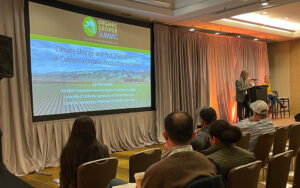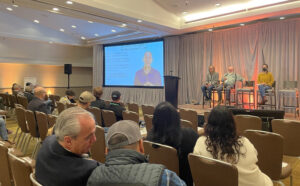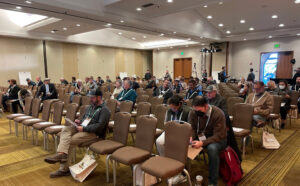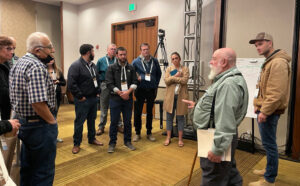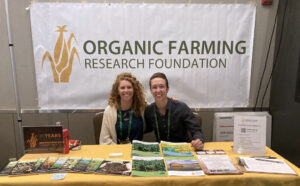Organic Agriculture Research Forum at EcoFarm Conference 2022
Organic Farming Research Foundation is hosting the 2022 Organic Agriculture Research Forum (OARF) at the 42nd Annual EcoFarm Conference. This year’s event will be held virtually, March 9-18, with field days scheduled in April-June 2022.
The following OARF workshops will be conducted online:
Research Report-Back: Soil Health on Organic Farms in the Central Coast
Tuesday, March 15, 1:15PM-2:30PM PT
Scientists from the UC Berkeley Soil Health Project will present the results of their soil ecology, bird ecology, and social science research on the topic of soil health on organic vegetable farms. We studied 18 organic farms to learn about different farming practices and innovations farmers are using to protect the soil. Organic lettuce and vegetable growers along the Central Coast of California use many different practices to support soil health, from cover cropping and composting to planting hedgerows. How does the farming model affect the challenges and opportunities for using soil health practices? How does the use of these practices impact nutrient cycling and soil carbon, suppression of foodborne pathogens in soil, and conservation of bird communities? In this session, we report back on our research over the past two years and share our findings on the benefits and challenges of implementing practices that build soil health.
Findings from the 2022 National Organic Research Agenda and Listening Session
***Presented by OFRF
Wednesday, March 16, 1:15PM-2:30PM PT
The Organic Farming Research Foundation regularly surveys organic growers, farmers, ranchers across North America to understand their challenges and research needs. They use these findings to publish the National Organic Research Agenda (NORA) report. This report informs OFRF research, education and advocacy programs and has also historically served as a critical roadmap to inform the USDA and Congress on how to leverage public investments in organic research and technical assistance. In 2019 OFRF surveyed over 1,000 farmers and held 16 focus groups with both established certified organic growers and transitioning growers. In this listening session we will summarize the findings of the most recent NORA report, and then open the floor for dialogue on the future needs within organic production systems.
Farmer to Farmer Panel on Soil Health/ Grupo de agricultor a agricultor sobre la salud del suelo
Thursday, March 17, 11:15AM-12:30PM PT (Note: En Español / In Spanish)
Two organic vegetable farmers with highly diversified organic production will share their experiences with using practices to build soil health. What works? What have they changed over time? And what challenges do they face that they are still working on? These two growers have participated in the UC Berkeley Soil Health Research project and will share some data about their farms in terms of soil microbial diversity and fertility as well as their reflections on how their farming practices have influenced these measurements.
Agricultores de productos orgánicos con alta diversidad en la producción orgánica compartirán sus experiencias con el uso de prácticas para crear la salud del suelo. ¿Qué es lo que funciona? ¿Qué es lo que ellos han cambiado a través del tiempo? Y, ¿cuáles son los retos en los cuales ellos todavía están trabajando? Estos tres agricultores han participado en el UC Berkeley Soil Health Research (proyecto de Investigación de la Salud del Suelo de UC Berkeley) y compartirán algo de los datos acerca de sus operaciones agrícolas en términos de la diversidad microbiana y la fertilidad, así como sus reflexiones sobre cómo sus prácticas agrícolas han influenciado estas medidas.
Controlling Spotted Wing Drosophila Organically
Friday, March 18, 1:15PM-2:30PM PT
Despite increasing pressure associated with SWD on a wide range of fruits, there are few organic options for its control. This session will explore research on integrated techniques that are proving effective without the use of prohibited insecticides. Some of these techniques include attractants, netting, trapping, biological control, and more. Because this pest is now widespread in soft fruit, fighting it is very important.



 When she isn’t working, Thelma enjoys cooking and baking, rock climbing, and making art. She resides in Florida with her family and dog Mocha (a Boykin Spaniel and Lab mix), and visiting the Everglades National Park (both pictured right).
When she isn’t working, Thelma enjoys cooking and baking, rock climbing, and making art. She resides in Florida with her family and dog Mocha (a Boykin Spaniel and Lab mix), and visiting the Everglades National Park (both pictured right). My farming and food-system hero is Leah Penniman, the founder and co-Director of Soul Fire Farm and author of Farming While Black. Leah is a pioneer, a visionary, and a doer, and I find her tenacity and drive inspiring. The mission and work being done at Soul Fire Farm is honorable and just, and to top it all off, she is a kind and compassionate human with a stellar smile.
My farming and food-system hero is Leah Penniman, the founder and co-Director of Soul Fire Farm and author of Farming While Black. Leah is a pioneer, a visionary, and a doer, and I find her tenacity and drive inspiring. The mission and work being done at Soul Fire Farm is honorable and just, and to top it all off, she is a kind and compassionate human with a stellar smile.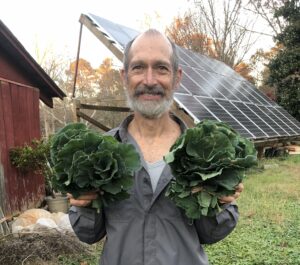 Organic farmer and
Organic farmer and 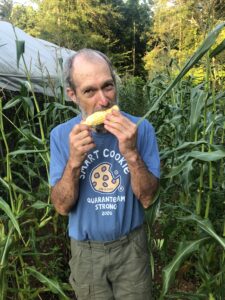 To participate in the program, eligible operations must submit their OCCSP applications to State agencies or to their local
To participate in the program, eligible operations must submit their OCCSP applications to State agencies or to their local 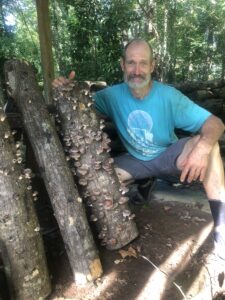 Though the operational decision to downsize reflects a personal interest for Hager and his wife to invest their time elsewhere, Hager admits that running a farm has become increasingly more stressful. “Every year, there seems to be a new requirement to get certification,” says Hager. “The ‘time-cost’ and financial cost continues to go up on top of the problems with climate and changing markets. The increasing complexity of certification adds a lot of stress to being a farmer.”
Though the operational decision to downsize reflects a personal interest for Hager and his wife to invest their time elsewhere, Hager admits that running a farm has become increasingly more stressful. “Every year, there seems to be a new requirement to get certification,” says Hager. “The ‘time-cost’ and financial cost continues to go up on top of the problems with climate and changing markets. The increasing complexity of certification adds a lot of stress to being a farmer.”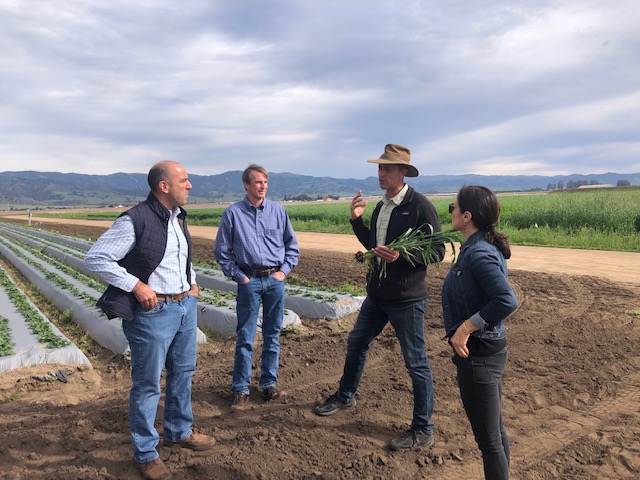
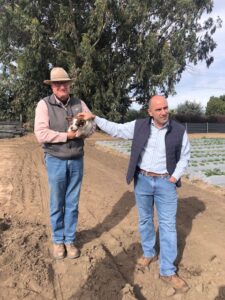
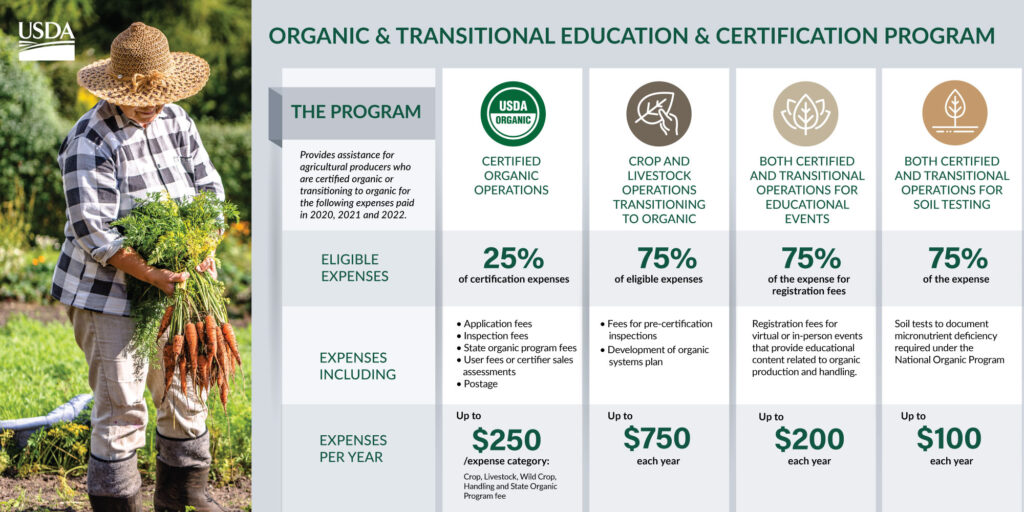
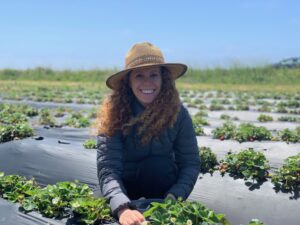 Tell us about yourself.
Tell us about yourself.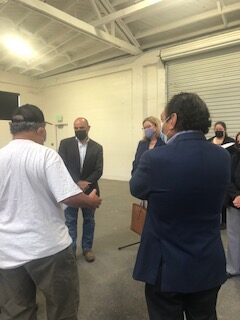
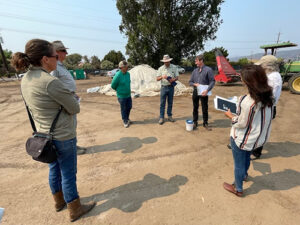 Also in August, OFRF hosted
Also in August, OFRF hosted 
